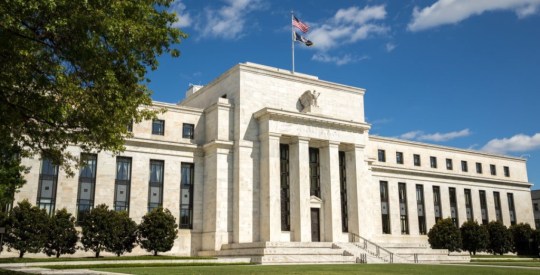Faced with growing losses on the value of its combined $1.5trn mortgage books, government-sponsored enterprises (GSEs) Fannie Mae (FNM) and Freddie Mac(FRE) added $291bn in subsidy costs to the Federal deficit by mid-year, according to the Congressional Budget Office (CBO) the agency tasked with recording costs incurred by the government. That number may reach as high as $389bn over the course of this decade. The agencies’ combined net worth deteriorated from a $7bn surplus in June 2008 to a $258bn deficit in June 2009, according to the CBO report (download here). However, the CBO expects the overall cost to dwindle to a projected $99bn between 2010-2019.  The Fannie and Freddie numbers come from the CBO’s August baseline estimate [pictured above] of federal outlays for fiscal year 2009. According to the just-released CBO “Budgetary Treatment of Fannie Mae and Freddie Mac” report, loan losses on defaults are typically in the range of 30-50% of outstanding balance. With a housing market in decline, the loss rates are expected to be much higher. “The total amount that CBO projected for the Treasury’s cash infusions from 2009 to 2019—$163bn—falls well short of the $389bn in subsidy outlays projected in CBO’s baseline for that period,” the report states. The higher projected costs of the GSEs come as regulators are cracking down on bonuses paid to employees of financial firms and the Administration is proposing a tax to repay the Troubled Asset Relief Program (TARP). Further, today Representative Darrell Issa (R-CA), a House Committee on Oversight and Government Reform member joined with Reps. Dennis Moore (D-KS), Judy Biggert (R-IL) and Chairman Edolphus Towns (D-NY) to introduce H.R. 4450, or the Federal Housing Finance Agency Inspector General Technical Corrections Act of 2009. The group is calling for the immediate appointment of an inspector general for the Federal Housing Finance Agency (FHFA), which holds jurisdiction over the GSEs. “Fannie and Freddie have become the largest taxpayer bailout in American history it defies common sense to leave them without proper oversight while the federal government keeps giving them unlimited access to its ATM card,” Issa said in a statement today. “This bipartisan bill should be voted on as soon as humanly possible so that we can put in place some mechanism of accountability and independent oversight at the FHFA because at this moment – there is none.” The previous Inspector General, Edward Kelly, was stripped of his independent oversight in November 2009. At any rate, the CBO expects the portfolio size of the GSEs to remain stable through 2010, regardless of the activity in the secondary market: “New purchases are assumed to be confined to conforming mortgages and to MBSs issued by the two entities or by Ginnie Mae, rather than subprime or Alt-A securities,” the report states, assuming that “subprime and Alt-A mortgages that terminate early would default, be refinanced privately, or be refinanced through the Federal Housing Administration.” Write to Diana Golobay.
The Fannie and Freddie numbers come from the CBO’s August baseline estimate [pictured above] of federal outlays for fiscal year 2009. According to the just-released CBO “Budgetary Treatment of Fannie Mae and Freddie Mac” report, loan losses on defaults are typically in the range of 30-50% of outstanding balance. With a housing market in decline, the loss rates are expected to be much higher. “The total amount that CBO projected for the Treasury’s cash infusions from 2009 to 2019—$163bn—falls well short of the $389bn in subsidy outlays projected in CBO’s baseline for that period,” the report states. The higher projected costs of the GSEs come as regulators are cracking down on bonuses paid to employees of financial firms and the Administration is proposing a tax to repay the Troubled Asset Relief Program (TARP). Further, today Representative Darrell Issa (R-CA), a House Committee on Oversight and Government Reform member joined with Reps. Dennis Moore (D-KS), Judy Biggert (R-IL) and Chairman Edolphus Towns (D-NY) to introduce H.R. 4450, or the Federal Housing Finance Agency Inspector General Technical Corrections Act of 2009. The group is calling for the immediate appointment of an inspector general for the Federal Housing Finance Agency (FHFA), which holds jurisdiction over the GSEs. “Fannie and Freddie have become the largest taxpayer bailout in American history it defies common sense to leave them without proper oversight while the federal government keeps giving them unlimited access to its ATM card,” Issa said in a statement today. “This bipartisan bill should be voted on as soon as humanly possible so that we can put in place some mechanism of accountability and independent oversight at the FHFA because at this moment – there is none.” The previous Inspector General, Edward Kelly, was stripped of his independent oversight in November 2009. At any rate, the CBO expects the portfolio size of the GSEs to remain stable through 2010, regardless of the activity in the secondary market: “New purchases are assumed to be confined to conforming mortgages and to MBSs issued by the two entities or by Ginnie Mae, rather than subprime or Alt-A securities,” the report states, assuming that “subprime and Alt-A mortgages that terminate early would default, be refinanced privately, or be refinanced through the Federal Housing Administration.” Write to Diana Golobay.
Fannie, Freddie Cost the Government $291bn in 2009
Most Popular Articles
Latest Articles
Powell makes it clear: No rate cuts anytime soon
Powell made statements that indicate there will be no rate cuts anytime soon because the economy and the labor market are too strong.



